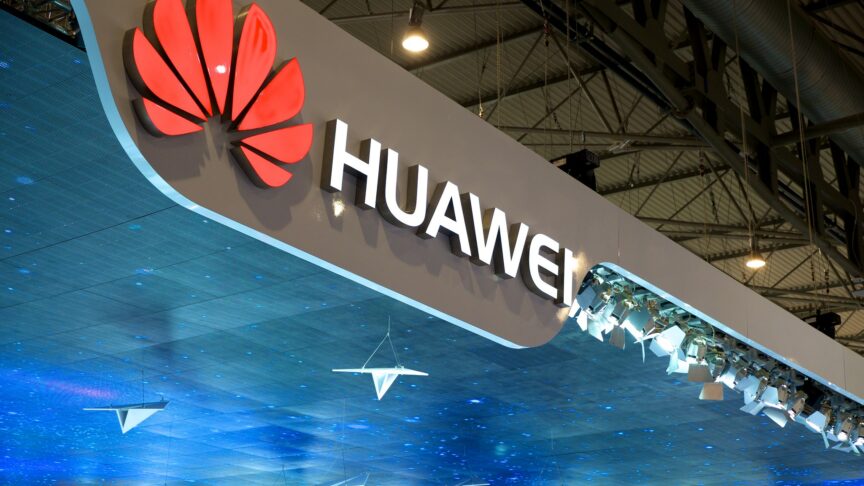Germany, Europe, and the coming battle over 6G
Germany is right to view 6G through the lens of growing geopolitical competition. But, instead of investing in its own 6G programme, the country could better serve its interests by supporting EU efforts to develop standards in this area.
Though 5G is still in the early stages of deployment, countries eager to be at the leading edge of technology are already looking towards 6G, the next generation of telecoms systems designed to bring the digital and physical worlds closer than ever. It is still unclear what this will look like and what kind of connectivity it will enable: experts do not expect the fully developed 6G networks to be available until 2030. But, as the geopolitical rivalry between China and the United States continues, 6G is becoming another battlefield in their fight for technological superiority and influence.
China is developing its own domestic innovation ecosystem to reduce its dependence on foreign suppliers. And the US is following suit, investing heavily in its critical technologies and telecoms infrastructure. The US is also pushing forward with its effort to make Open RAN the global method of choice for developing telecoms networks. And this was recently enshrined in an agreement struck at the Prague 5G Security Conference. But Open RAN comes with a whole slew of problems related to network security and the reliability of supply chains. On 6G, standards may be the area in which geopolitical competition forces the European Union to choose between compatibility with either China or the US, thereby greatly reducing its interoperability with the one it turns away from.
In today’s telecoms industry, international standards are regulated by 3GPP, an organisation responsible for setting the technical specifications for interoperability across different geographical regions and markets. Compliance with the standards, including those for 5G, is voluntary (as is that with most global technical standards). And, while industry leaders hope that 3GPP will oversee worldwide 6G standards, there is no guarantee countries will maintain the common approach to telecoms networks and equipment that currently underpins the global economy: several Chinese companies that are members of 3GPP could act en masse to prioritise their own (or Beijing’s) interests – rather than opt for the most effective technical approach.
Telecoms operators and developers should favour the technology that allows for the greatest degree of future interoperability and coordination. But, given the trend towards digital nationalism and the US-China competition’s effect on the digital economy, there is a risk of a true fissure in the global telecoms industry.
While Berlin’s desire to be at the forefront of 6G is understandable, it first needs to address its lingering 5G issues
As their geopolitical rivalry extends into 6G, both China and the US may choose to pursue individual sets of standards, leaving the EU and the rest of the world caught in the middle. Rather than follow the lead of one country, the EU could try to maintain its neutrality between both. But such an approach would risk huge economic losses: with any divergence in global standards, European small and medium-sized enterprises would lose access to important markets in China, the US, or both. Depending on how other powers adjusted to this bifurcation, the EU could also be cut out of their markets.
The US and China are not the only powers developing 6G tech. The EU is funding 6G research through the 6Genesis Flagship Program and Hexa-X – an initiative that falls under the European Commission’s Horizon 2020 financial instrument, and that is designed to promote EU leadership in various areas of technology. Countries such as Japan, South Korea, and the United Kingdom are also working on their own domestic platforms. For these states, the lessons of the Huawei 5G debate are still fresh – industry leaders and policymakers face tricky questions about balancing network security and trustworthiness against cost, and are eager to avoid dependence on a single vendor or supply chain for their telecoms needs. Accordingly, they are keen to increase the resilience of their domestic networks by moving forward with their own 6G ecosystems.
Germany has also entered this crowded field. Berlin is funding research into a domestic 6G project, allocating €700 million of taxpayers’ money to develop its own 6G platform in the name of Germany’s future tech sovereignty. But while Berlin’s desire to be at the forefront of 6G is understandable, it first needs to address its lingering 5G issues. After years of discussion, the Huawei debate in Germany was partially settled earlier this year with the passage of the IT Security Law 2.0.
Yet, while the law sets out high technical and trustworthiness thresholds to ensure security, its implementation will fall to the next governing coalition. In the meantime, instead of investing in its own 6G programme, Germany could better serve its interests by supporting EU efforts to develop 6G standards. Though Berlin should pay attention to 6G, this is a technological challenge best left to Brussels, which can use the Hexa-X initiative to coordinate EU member states’ development of common 6G infrastructure – in the same way it did with its 5G toolbox.
Given the tension between Beijing and Washington, the EU and the rest of the world are right to view 6G through the lens of growing geopolitical competition and to build up their own resilience in the area. But rather than spend taxpayers’ money on developing its own 6G ecosystem, Germany should support existing EU programmes and seek closer collaboration with its allies and partners. This would help the country weather any fallout from the US-China rift. As Germany transitions to a new government and re-evaluates its relationship with China, policymakers in Berlin should be wary of 6G’s deeper implications for global connectivity.
The European Council on Foreign Relations does not take collective positions. ECFR publications only represent the views of their individual authors.



